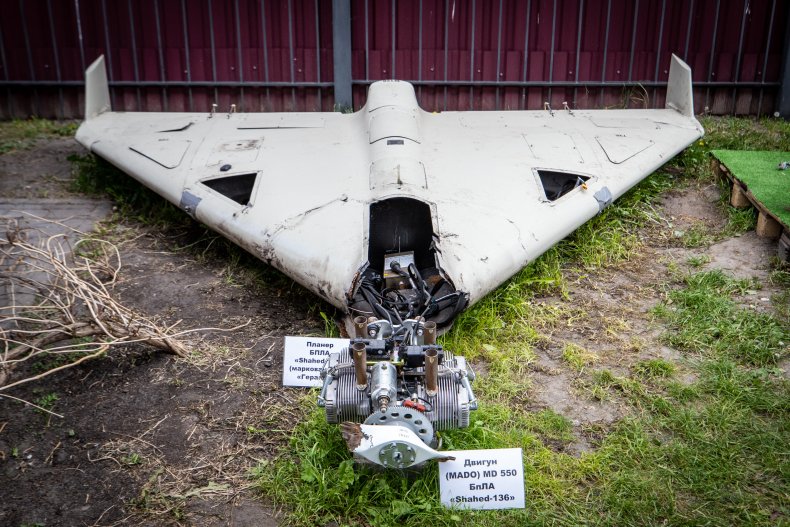Russia's bombing campaign against Ukrainian shipping infrastructure has now expanded to NATO's border, with Moscow sending drones against docks on the Danube river close to Romania's frontier on Monday, while continuing its use of anti-ship "carrier killer" missiles in Odesa.
The British defense ministry on Tuesday released an update on Moscow's bombardment of Ukraine's shipping operations, which began anew last week after the Kremlin withdrew from the Black Sea Grain Initiative. The accord came into force in July 2022 to safeguard the export of vital foodstuffs through the Black Sea.
"On 24 July 2023, Russia extended one way attack drone strikes to the docks on the Danube river, approximately 200 metres [600 feet] from the Romanian border," the ministry said in its bulletin published on Twitter.
The target of the attack was the Ukrainian port of Reni, located around 70 miles inland of the Black Sea up the river Danube. Ukrainian authorities reported that Iranian-supplied Shahed-136 drones destroyed a warehouse storing grain and damaged tanks used to hold other goods. The strikes caused a fire that was later extinguished.

Oleh Kiper, the head of the Odesa Oblast military administration, said four port workers were admitted to hospital after the attack, one of whom was in a moderate to serious condition.
Three drones were destroyed by Ukrainian air defenses during the four-hour attack, Kiper said. Newsweek has contacted the Russian defense ministry by email to request comment.
The attack prompted condemnation from abroad. Romanian President Klaus Iohannis wrote on Twitter: "I strongly condemn the recent Russian attacks against the Ukrainian civilian infrastructure on Danube, very close to Romania. This recent escalation pose [sic] serious risks to the security in the Black Sea. It also affects further Ukrainian grain transit and thus the global food security."
State Department spokesperson Matthew Miller, meanwhile, said the attacks targeted "a vital export route for grain since Russia has effectively blocked Black Sea ports." He added: "The United States strongly condemns Russia's escalatory attacks...These vicious strikes further illustrate Russia's willingness to use food as a weapon in its illegal war against Ukraine."
Russia renewed airstrikes on Ukrainian port infrastructure following the latest attack on the Kerch Strait Bridge. Moscow vowed retaliation and said it would no longer abide by the Black Sea Initiative, under which some 36 million tons of grain had been exported in relative safety since July 2022.
Kyiv has warned that the collapse of the deal imperils the food security of millions around the world, and that the closing of the Black Sea export corridor threatens to blow another hole in the national budget.
The British defense ministry said the long-range strikes on the Odesa region and other areas of southern Ukraine "have featured an unusual number of AS-4 KITCHEN missiles," using the NATO reporting name of the Kh-22 anti-ship missile. The weapon, the ministry noted, was "originally designed to destroy aircraft carriers."
"Between August 2022 and June 2023, when the Black Sea Grain Initiative was still in force, Russia generally refrained from striking civil infrastructure in the southern ports," the ministry explained.
"Since Russia failed to renew the deal, the Kremlin likely feels less politically constrained, and is attempting to strike targets in Odesa because it believes Ukraine is storing military assets in these areas."
"Since the start of the war, Russia's strike campaign has been characterized by poor intelligence and a dysfunctional targeting process," the ministry added.









